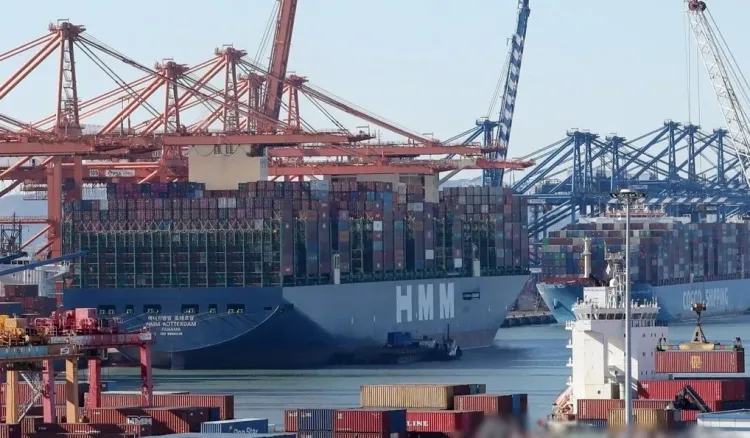Why is South Korea imposing anti-dumping tariffs on Chinese stainless steel plates?

Synopsis
Key Takeaways
- South Korea's trade watchdog has implemented anti-dumping tariffs on Chinese stainless steel plates.
- The tariffs amount to 21.62 percent for five years.
- This action follows a complaint from DK Corp. regarding unfair competition.
- The KTC found substantial damage to the local steel industry.
- Provisional tariffs on other products from China and Thailand are also under consideration.
Seoul, June 26 (NationPress) South Korea's trade regulatory body announced on Thursday the implementation of anti-dumping tariffs on stainless steel plates imported from four Chinese firms, as reported by the country's industry ministry.
The Korea Trade Commission (KTC) reached a definitive conclusion to suggest that the finance ministry impose 21.62 percent duties on stainless steel products sourced from Schuang International Development Ltd., STX Japan Corp., Best Win International Co., and Jiangsu Daekyung Stainless Steel Co., all located in China, for the duration of five years.
This decision was prompted by a complaint filed by South Korea's steel manufacturer DK Corp. against these Chinese companies with the KTC last year, as indicated by the Yonhap news agency.
The KTC determined that the dumping of Chinese steel plates, which are extensively utilized in the natural gas, shipbuilding, semiconductor, and display industries, has inflicted significant harm on the domestic market.
Additionally, on Thursday, the KTC conducted a public hearing regarding the potential damage to Korean firms from alleged dumping of Chinese sodium dithionite products and Thai particle boards, with a final decision on possible anti-dumping measures expected later this year.
In a related matter, in April, South Korea's trade authority resolved to apply anti-dumping tariffs on cold-rolled stainless steel products imported from two Vietnamese companies.
The KTC finalized its recommendation for the finance ministry to impose 18.81 percent duties on stainless steel products from Yongjin Metal Technology Co. of Vietnam and 11.37 percent tariffs on imports from TVL Joint Stock Co. for the next five years.
This action followed a complaint lodged by South Korean steel giant POSCO Holdings Inc. against the Vietnamese firms last year.
The KTC's investigation revealed that the dumping of Vietnamese steel products has also caused substantial damage to the local steel sector.
Furthermore, the KTC advised the finance ministry to impose provisional anti-dumping tariffs of up to 33.97 percent on Chinese sodium dithionite products following an initial investigation.
Additionally, provisional anti-dumping tariffs of up to 17.19 percent on particle board imports from Thailand were proposed by the trade watchdog, as per the ministry's statement.









